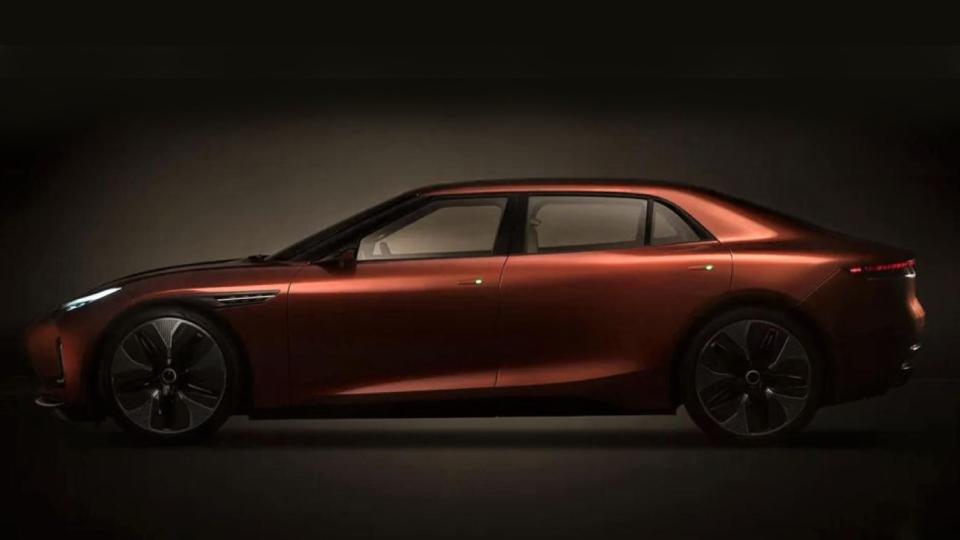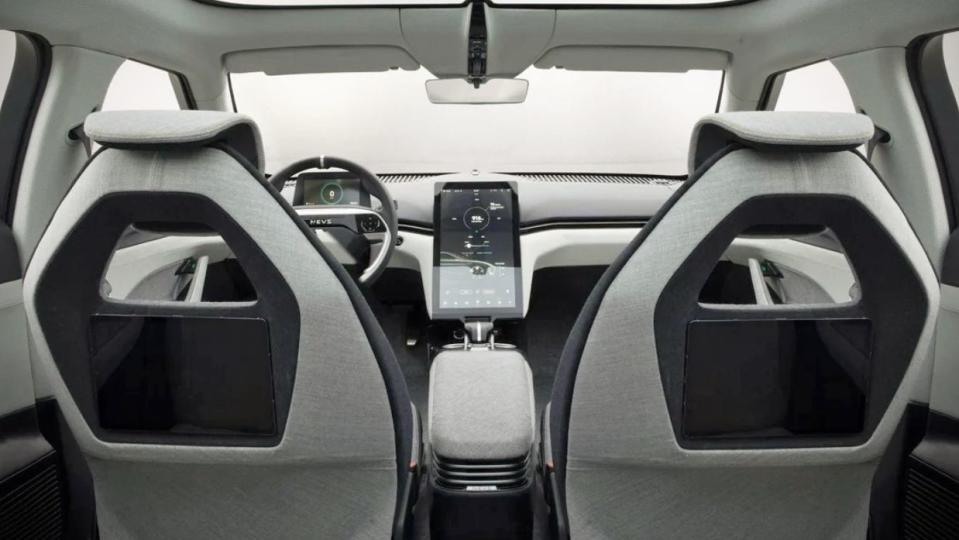Last Descendent of Saab, the Electric Emily GT, Could Yet Return

Startup EV Electra acquires electric luxury sedan project from National Electric Vehicle Sweden (NEVS), promising to bring the Emily GT into production in Trollhattan, Sweden.
The sedan, revealed in prototype form in the closing months of NEVS production, promised a quad-motor layout range of over 600 miles in the WLTP cycles, thanks to a 175-kWh battery.
Even amid booming EV sales in northern Europe, it is unclear whether NEVS' revived manufacturing footprint could profitably produce a long-range luxury electric sedan in such a contested segment.
In the decade since Saab's untimely departure in the midst of the auto industry crisis, we have seen a number of resuscitation efforts that offered brief glimmers of hope of a comeback for the brand, in spirit if not in name. And with each iteration, we've also been getting further away from what most would consider Saab DNA.
The latest comes in the form of a relaunch effort for the Emily GT electric sedan.
The EV sedan project was effectively the last vehicle developed by National Electric Vehicle Sweden (NEVS) just before production had ceased in Trollhättan, Sweden in 2022, and promised a quad-motor layout, a massive 175-kWh battery, 484 hp, and over 600 miles of range in the WLTP cycle.
The concept itself was revealed in a tumultuous time for NEVS, which had been busy looking for a buyer for its entire set of assets, including the Trollhättan factory. Ambitious target specs aside, the Emily GT appeared to be the spiritual successor to the very last 9-5 sedan launched by Saab over a decade ago, which was the main appeal of the project for Saab enthusiasts.
A buyer now appears to have materialized in the form of EV Electra, a company based in Lebanon that also has offices in Canada and a number of European countries, in addition to manufacturing facilities in Turkey. But the ambitious electric sedan, according to the company's founder Jihad Mohammad, is intended to be produced in the former Saab plant and is planned to be offered as the EV Electra Emily GT.

"We will have cars coming out of Trollhättan again. We did this acquisition fully aware that we will need to back it all the way through development to mass production," said the company's founder.
EV Electra also purchased the mobility ecosystem PONS from NEVS—an autonomous electric shuttle project for cities.
How much of a chance the new buyer has of bringing the Emily GT to market as intended is difficult to gauge. NEVS certainly seems excited about the development.
"It's fantastic that we have found a buyer who sees the value in the legacy of the iconic cars that have been built and developed in Trollhättan over the years”, said NEVS CEO Nina Selander.
Now that it has been promised that the Emily GT will reach production, perhaps it's time to examine whether it should reach production.
There is certainly no shortage of electric luxury sedans at the moment with big price tags and a lot of power. But as the latest industry trends demonstrate, the EV market is moving away from this sort of offering, to the point where automakers have started offering deep discounts on such models.

Just how a large luxury electric sedan could hope to stand out amid offerings from BMW, Audi, Mercedes-Benz, Porsche, Lucid, Nio, and Tesla, even in EV-friendly markets in northern Europe and with a halfway-serious sales and service network, is a question some automakers—including Lexus, Acura, and Jaguar—have preferred to avoid entirely at this point.
As much as we'd like to see something Saab-adjacent produced again, in modern form rather than on a zombie platform, the buyers of NEVS' assets would certainly face an uphill battle in a cutthroat segment, one that has already seen its share of sales flops.
Is there room in the market for another luxury electric sedan, or are other EV segments more promising at the moment? Let us know what you think.

 Yahoo Autos
Yahoo Autos 